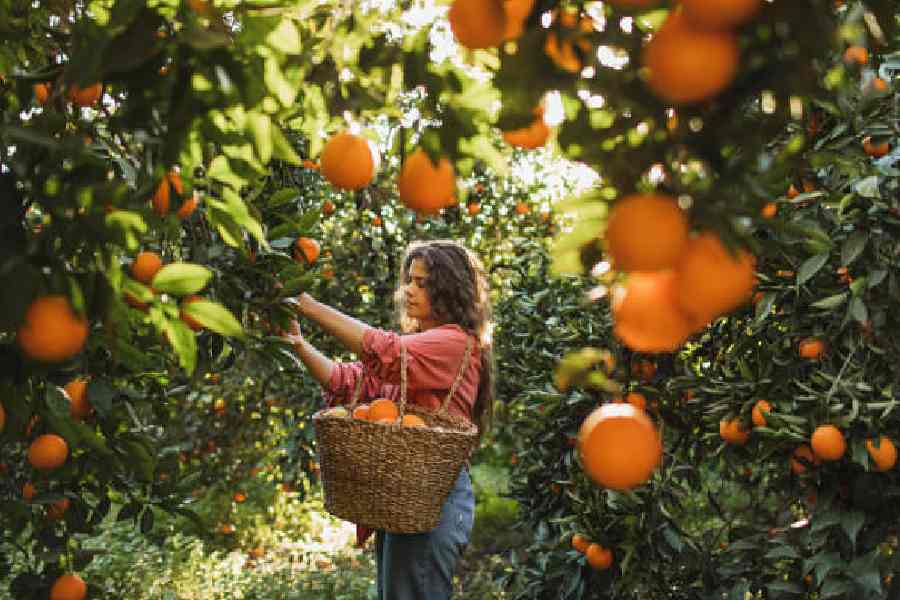Recently, Bollywood actor Alia Bhatt repeated her Sabyasachi wedding sari when she received a National Award for her film Gangubai Kathiawadi, and it re-ignited the conversation around sustainability. The same ethos is now being reflected in the beauty and personal care segment. As much as we ought to care about what goes on our skin and hair, it is also our responsibility to check what is landing on the environment and decide on our beauty and skincare product choices wisely. On that thought, a recent trend that is taking the beauty industry by storm is the use of sustainable ingredients, also called upcycled beauty.
Today’s buyers are environment conscious and they are not ignorant about their purchases. To cater to discerning consumers, beauty brands and the personal care industry have started incorporating sustainable practices and ingredients in the products they bring to our dressing tables. Not just that, many of these companies upcycle discarded raw materials, including food and beverage and agricultural waste, enhancing their eco-friendly ingredients portfolio, thereby setting the bar high in beauty and natural skincare solutions. Coffee beans, tea waste, apricot kernels, citrus extracts, dried fruit seeds, grapes waste, olive oil waste can be sources of these ingredients. With upcycling, we also produce less as a planet, which translates to less use of our natural resources.
For example, coffee grounds are natural skin exfoliators and in general coffee waste has a lot of beauty and skincare applications. Bioscience company Kaffe Bueno upcycles coffee byproducts into “high-performance ingredients”. They claim to be at the forefront of the 'clean label' revolution. Their Kaffoil, an upcycled coffee-derived lipophilic extract, has multiple skin and hair benefits and can be incorporated in serums, face oil, shampoos, lotions, conditioners, sunscreens and so on. Their Kaffibre is an upcycled natural exfoliating ingredient and can be used to produce body washes, face cleansers and face, lip and body scrubs. Their Kleanstant is “a bio-based anionic surfactant upcycled from coffee byproducts with cleansing, emulsifying, foaming, and antioxidative properties, and with a moisturising effect”. Derived from upcylced decaffeinated coffee, Kaffage can be used in BB and CC creams, foundations, concealers, etc.
German-based company Circly claims to source their ingredients regionally to cut down on carbon footprints from transportation. Apart from sustainable packaging, they offer upcycled products such as Orange Soap with a peeling effect, which means they use orange peels that act as natural exfoliators. Their other sustainable products include Coffee Soap with peeling effect containing coffee grains made from upcyled coffee grounds; lip balm containing upcycled coffee oil; and face serum with coffee oil.
Pai, a London-based company, is another prominent name in the market. Their C-2 Believe Vitamin C Brightening Moisturiser contains upcycled Omega-rich Bilberry extracts, which is putting to use seeds left over in the juicing industry. Their The Anthemis contains organic CO2 extracts of organic chamomile and rosehip. They also use jojoba wax beads in their product formulations to make exfoliators.
US-based brand Loli Beauty’s ultra-hydrating serum for glowing skin and healthy hair contains plum seed oil, pomegranate seed oil, sunflower seed oil and sea buckthorn fruit oil, among others. Their scrub contains purple corn and orange peels, among other natural ingredients.
French label Pulpe de Vie makes a facial serum using organic ingredients such as plum seed oil, cucumber extract, sunflower seed oil, sea buckthorn fruit extract, summer lilac leaf extract, extracts of thyme flowers and leaves, carrot root extracts, etc. Their purifying sheet mask contains grapefruit peel extract, mandarin peel extract, bitter orange peel extract, lemon peel extract, carrot root extract, etc.
The world is witnessing a shift towards products made by these clean and plant-based beauty and skincare brands, but in any case, a patch test is always recommended before direct use to avoid complications.
Speaking to t2, dermatologist Dolly Gupta said: “The world is still catching up on the idea of upcycled beauty products. When it comes to packaged products that claim to contain natural ingredients, manufacturers should look for ways to eliminate the use of preservatives that adversely affect our skin. The final product is not natural. This problem needs to be addressed.”
